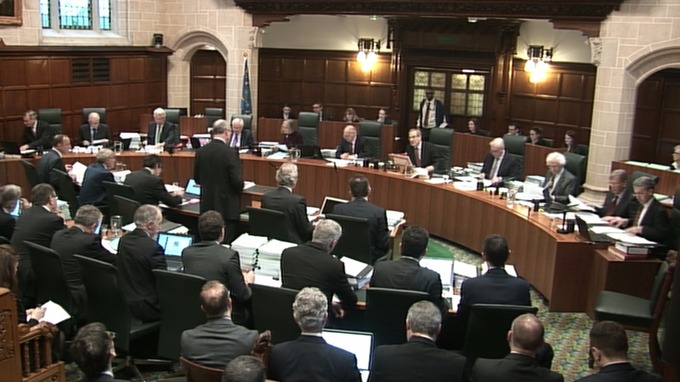
The Supreme Court will begin a landmark legal hearing today on whether the government needs Parliament’s consent before it can trigger Brexit.
U.K. Prime Minister Theresa May’s Brexit ambitions are set to face their biggest challenge to date this week as the Supreme Court begins a four-day hearing Monday to decide who has the authority to trigger an exit from the European Union.
The outcome of the case, possibly the biggest constitutional debate ever heard by the country’s highest court, could determine whether there is a “Hard Brexit” with no single market access, a “Soft Brexit” preferred by markets and business leaders, or, in the most extreme outcome, no Brexit at all.
The case centers on whether the Prime Minister has executive powers to trigger Article 50 of the Lisbon Treaty, which begins exit proceedings from the EU, without a parliamentary vote and if the Article is irrevocable once triggered.
A lower court of three judges ruled unanimously in November that May did not have the right to trigger Article 50 without first consulting lawmakers, a decision which the government immediately appealed.
A full panel of eleven justices — the largest assembled since the Law Lords were created in 1876 — will hear the case, as opposed to the typical quorum of five, in order to eliminate any doubts over what could be a significant constitutional verdict.
The government will argue the Prime Minister has the right to unmake treaties under so-called prerogative powers and will focus its arguments on the fact that Britain has a dualist constitutional system, meaning government decisions on the international plane can sometimes impact domestic law.
Lawyers for lead claimant Gina Miller will argue that if Brexit is triggered without a vote by lawmakers it would deny British citizens existing rights enshrined in domestic law in the 1972 European Communities Act.
A ruling is not expected until January. The case risks being referred to the European Court of Justice in Luxembourg, which could be politically awkward for the Prime Minister.
May has said repeatedly said she intends to trigger the Article 50 exit clause by the end of March 2017 but this could be delayed if the case carries on to the European courts or a parliamentary vote is needed.














Surely not Theresa May’s Brexit ambitions, or did the majority of the British people voting for it in the referendum never happen?